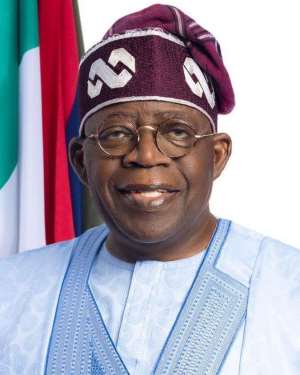
The last has not been heard about the cost of living crisis in Nigeria under President Tinubu. The labour unions have recently made a bold demand for an increase in the minimum wage, citing the rising cost of living and economic challenges facing the country. The current minimum wage of 30,000 Naira per month, set in 2019, has become increasingly inadequate for workers to meet their basic needs in the face of inflation and other economic pressures.
Labour, led by the Nigeria Labour Congress (NLC) and the Trade Union Congress (TUC), are pushing for a new minimum wage of 75,000 Naira per month. This demand comes at a time when Nigeria is grappling with a series of economic challenges, including high inflation rates, a weakening currency, a moribund manufacturing sector and stagflation.
The proposed increase in the minimum wage has sparked a heated debate among various stakeholders in the country. While the labour unions argue that a higher minimum wage is essential to address the needs of workers and their families, some economists and business owners have expressed concerns about the potential impact on businesses and the overall economy. Just a few days ago the Federal Government has agreed to peg the minimum wage at N48, 000., which means the salary of low cadre civil servant cannot buy a bag of rice. Labour has refused to accept this offer, threatening industrial action.
Tinubu's economic policies of devaluation of the currency, floating the currency, the forex manipulations and the unending IMF and World Bank loans have all conspired to damage the fortunes of the economy. We now pilot the ship that is rudderless, with the pilots as confused as the crew
Economists warn that a significant increase in the minimum wage could lead to higher costs for businesses, potentially leading to job losses and reduced competitiveness. In a country already facing high levels of unemployment and underemployment, these implications are a cause for concern, as they could further exacerbate the already dire situation. This assertion in most quarters is regarded as scaremongering.
Supporters of the minimum wage increase argue that it is necessary to improve the standard of living for workers and reduce income inequality in the country. They posit that many families are struggling to make ends meet on the current minimum wage and that a higher wage is essential for economic growth stability and well-being of Nigerians.
There is cautious optimism that government will oblige labour's demand but some officials are hinting at the possibility of a gradual increase in the minimum wage over time. This cautious approach reflects the delicate balancing act that policymakers face in addressing the demands of workers while also considering the broader economic implications of a wage increase.
As the nationwide strike looms, negotiations between the labour unions, government, and other stakeholders continue but the outcome of this debate remains uncertain. The stakes are high, with the potential for significant impacts on businesses, workers, and the overall economy depending on the final decision regarding the minimum wage. Some argue that since Tinubu's ascendancy to power , the federal government has upped the tax regime virtually in every area and every month, trillions of naira are shared to politicians, while neglecting public servants in the country.
Now, workers across the country are closely watching the developments, hoping for a positive outcome that will alleviate their financial struggles and improve their quality of life. For many, the outcome of this debate will have far-reaching implications for their future economic well-being and the overall stability of the country.
Nigeria's banking sector is near comatose. Nigeria's now use the naira to buy naira, which the banking sector stinks. The POS business is firmly in the hands of bank officials.The war against corruption appears to be gaining momentum but executive corruption has continued unabated.
There is no contestation that civil servants in Nigeria deserve a living wage. This will increase productivity and boost the morale of workers. The minimum wage challenge is a matter of whether or not the essence of governance is to punish the citizens or to make life better for them. The minimum wage demanded by labour is grossly insufficient for bare survival. We live in a country where government has de-humanized the citizens and rendered them beggarly. This State of anomie and infamy is not acceptable in a country that prides herself to be the fastest growing economy in Africa.




 France bans election weekend rallies, extends curfew in New Caledonia
France bans election weekend rallies, extends curfew in New Caledonia
 Mauritanians vote in presidential election with incumbent tipped to win
Mauritanians vote in presidential election with incumbent tipped to win
 At least 30 killed in Kenya anti-government protests: HRW
At least 30 killed in Kenya anti-government protests: HRW
 Saglemi project rots while Ghanaians struggle for affordable housing
Saglemi project rots while Ghanaians struggle for affordable housing
 June 29: Cedi sells at GHS15.57 to $1, GHS14.59 on BoG interbank
June 29: Cedi sells at GHS15.57 to $1, GHS14.59 on BoG interbank
 Cedi will stabilize against US dollar after successful debt restructuring — Econ...
Cedi will stabilize against US dollar after successful debt restructuring — Econ...
 We can't allow unpatriotic people to inflict hardship on Ghanaians — Prof Gyampo...
We can't allow unpatriotic people to inflict hardship on Ghanaians — Prof Gyampo...
 ‘Significant initial victory’ — Ablakwa reacts to NPRA’s order halting SSNIT hot...
‘Significant initial victory’ — Ablakwa reacts to NPRA’s order halting SSNIT hot...
 It's unacceptable political party manifestos aren't out 5 months to election — P...
It's unacceptable political party manifestos aren't out 5 months to election — P...
 Hajia 4reall Breaks Down in Court, Pleads for Mercy: 'I Want to Make Amends
Hajia 4reall Breaks Down in Court, Pleads for Mercy: 'I Want to Make Amends
